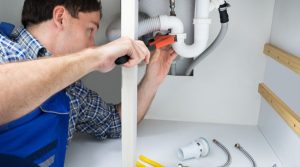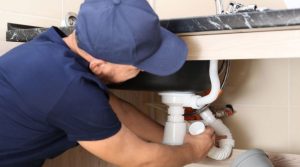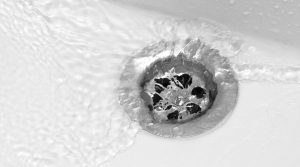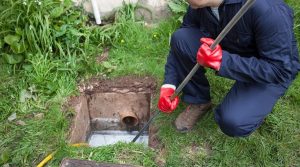Radiators are an efficient and reliable heating solution, but proper maintenance ensures their longevity and optimal performance. This detailed guide will help you keep your radiators in top shape.
Key Takeaways
- Efficient Heating: Radiators provide steady and comfortable warmth without drying out the air or spreading allergens.
- Regular Maintenance: Simple tasks like bleeding the radiator and monitoring boiler pressure can keep your system running efficiently.
- Safety First: Always turn off the system and allow water to cool before performing maintenance to avoid burns.
- Professional Help: A certified technician should always handle combustion chamber cleaning and advanced repairs.
Understanding Radiator Functionality
Radiators use radiant heat to warm your home. They operate through a closed-loop hot water system. The system includes a boiler that heats water to temperatures over 87°C, pumps it through pipes, and circulates it into radiators strategically around your home.
Once the water cools, it returns to the boiler to be reheated, making this an efficient, resource-conserving system. Unlike forced air systems, radiators:
Do not dry out the air.
Avoid spreading allergens or dust particles.
Offer consistent, soothing heat.
Older radiators are typically made from durable cast iron, which retains heat for extended periods. Modern radiators, while lighter and less expensive, are often constructed with steel for cost efficiency.
Essential Radiator Maintenance
Radiator systems require simple yet consistent maintenance to ensure smooth functioning. Here’s a breakdown of essential tasks:
1. Bleeding the Radiator
Over time, air can accumulate in the system, forming pockets that disrupt water flow and reduce heating efficiency. Here’s how to bleed your radiator:
Turn off the heating system and let it cool.
Locate the bleed valve, typically found at the top of the radiator.
Slowly turn the valve counterclockwise using a radiator key or a flat-head screwdriver.
Listen for a hissing sound as trapped air escapes.
Once water starts to trickle out, close the valve tightly.
Pro Tip: Hold a bowl beneath the valve to catch any water that escapes. Don’t worry if the water appears cloudy—it’s perfectly normal.
2. Checking Boiler Pressure
Maintaining proper boiler pressure is critical for efficient heating.
A cold boiler should register around 1.3 bar, while a hot boiler should be between 1.5 and 1.8 bar.
If the pressure is low, add water to the system by opening the cold-water feed valve while monitoring the gauge. Close the valve once the desired pressure is reached.
Note: Your system has a pressure relief valve to prevent over-pressurization. Place a bucket beneath it to catch any discharged water.
3. Inspecting and Cleaning the Combustion Chamber
The combustion chamber heats the water in your boiler, and residue buildup can affect its performance.
This component should be professionally cleaned every few years.
Attempting DIY cleaning can be dangerous due to the fire hazard.
Seasonal Radiator Tips
Pre-Winter Preparation
Bleed all radiators before turning on the heating system for the first time.
Inspect boiler pressure and top it up if necessary.
Check for leaks or unusual noises, which may indicate trapped air or sediment buildup.
Spring Shutdown
Once the heating season ends, turn off the system and conduct a thorough inspection.
Consider having a professional service in the system to prepare it for next winter.
Frequently Asked Questions (FAQ)
Q1. Why is one of my radiators not heating up properly?
A: Uneven heating often indicates trapped air in the system. Bleeding the radiator can resolve this issue. If the problem persists, check the boiler pressure or consult a professional.
Q2. How often should I bleed my radiators?
A: Ideally, bleed your radiators at least once a year, preferably before winter begins. Additional bleeding may be necessary if you notice cold spots or unusual noises.
Q3. What should I do if my boiler pressure is too high?
A: The pressure relief valve releases excess water until the pressure drops to the recommended range. Ensure a bucket is in place to catch discharged water.
Q4. Can I use any water to refill my radiator system?
A: Use clean tap water, but avoid overfilling. Consider using treated water to minimize scale buildup in areas with hard water.
Q5. Are modern radiators more efficient than older ones?
A: Modern radiators made of steel or aluminum are often more energy-efficient due to improved heat conduction and lighter materials. However, cast iron radiators retain heat longer, which can also be advantageous.
Q6. How can I identify leaks in my radiator system?
A: Look for visible water stains or pooling around radiators and pipes. Low boiler pressure may also indicate a leak. Call a professional for repairs if needed.
Q7. Is radiator maintenance expensive?
A: Basic maintenance tasks, such as bleeding radiators and checking boiler pressure, are cost-effective and DIY-friendly. Professional services, like combustion chamber cleaning, may range from $100 to $300, depending on your location and system complexity.
Safety Tips for Radiator Maintenance
Always turn off the heating system and allow it to cool before performing maintenance.
Wear protective gloves when working with valves or hot water.
Never attempt repairs beyond your skill level—consult a certified technician for complex issues.
Conclusion
Radiators are a durable and efficient heating solution that can last decades with proper care. By performing routine maintenance and seeking professional help when necessary, you can enjoy a warm and comfortable home throughout the winter season.
For expert assistance and high-quality radiator systems, visit BJC Plumbers Jersey City today!







